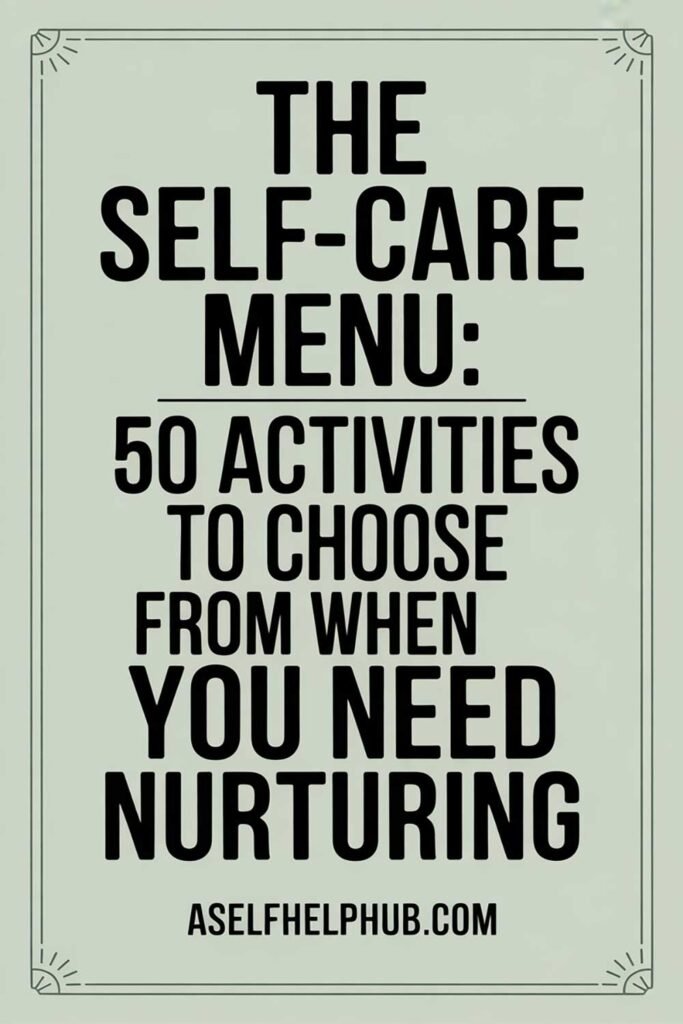
How to Master a New Skill Faster with Deliberate Practice: Beyond Just “Practice Makes Perfect”
We’ve all heard the adage “practice makes perfect,” but anyone who’s spent hours passively rehearsing a skill without significant improvement knows this isn’t entirely true. Hitting golf balls aimlessly, re-reading notes without engaging, or simply putting in “time” without intention often leads to stagnation, not mastery. The true secret to accelerating skill acquisition isn’t just practice; it’s deliberate practice – a highly focused, intentional approach to improvement that pushes you beyond your comfort zone.

Deliberate practice is the gold standard for mastery, distinguished by its structured, systematic nature. It’s about breaking down skills, targeting weaknesses, and engaging in continuous feedback loops. This method is employed by elite performers in every field, from musicians and athletes to scientists and chess grandmasters. For anyone looking to rapidly develop new abilities, whether for career advancement, personal fulfillment, or even launching a home-based business opportunities, understanding and applying deliberate practice is a game-changer.
This article will demystify deliberate practice, explain why it’s far more effective than traditional practice, and provide actionable strategies to help you apply its principles to master any new skill faster and more effectively.
The Deliberate Difference: Quality Over Quantity
What sets deliberate practice apart from simply “doing” something repeatedly?
- Intentionality: It’s purposeful and systematic, not casual. You’re practicing to improve a specific weakness, not just to perform.
- Targeted Weaknesses: It focuses on specific areas where you struggle, pushing you out of your comfort zone.
- Feedback Rich: It involves immediate and accurate feedback on your performance, allowing for rapid adjustments.
- Highly Focused: It demands intense concentration, often mentally taxing.
- Requires Effort: It’s hard work, unlike mindless repetition.
- Outside Comfort Zone: You are constantly pushing past what you can already do easily.
While traditional practice helps solidify existing skills, deliberate practice is designed to create new neural pathways and expand your capabilities. This commitment to intentional growth is a core component of overall career and professional growth.
How to Apply Deliberate Practice to Master Any Skill Faster
Here’s a step-by-step guide to integrate deliberate practice into your learning journey:
1. Define a Specific, Measurable Target
Vague goals lead to vague practice. Know precisely what you want to improve.
- The Strategy: Don’t just say, “I want to get better at public speaking.” Instead, focus on “I want to reduce my ‘um’ count by 50% in my next presentation,” or “I want to deliver my opening hook in 60 seconds with compelling body language.”
- Why it Works: Specific targets allow you to focus your energy and provide clear metrics for improvement.
- Real-Life Example: Sarah wanted to improve her coding efficiency. Instead of just coding for hours, her specific target became “reduce the time it takes to debug a simple syntax error by 20% by the end of the week.” She timed her debugging sessions to measure progress.
2. Break Down the Skill into Micro-Components
Complex skills are intimidating. Deliberate practice tackles them piece by piece.
- The Strategy: Identify the core sub-skills that make up the larger skill. For public speaking, this might include vocal variety, eye contact, body language, content structuring, Q&A handling. For a sport, it’s specific drills. Focus on one or two micro-skills in a practice session.
- Real-Life Example: Mark wanted to learn to play a complex piano piece. Instead of trying to play the whole song, he isolated specific challenging measures, practicing them slowly and repeatedly until mastered, before integrating them back into the larger piece.
3. Get Immediate, Accurate Feedback
Feedback is the mirror that shows you where to adjust.
- The Strategy: This is crucial. Seek out mentors, coaches, or experts who can provide constructive criticism. Use tools like video recording (for speaking, sports), data tracking (for performance), or peer reviews. The feedback needs to be specific and actionable.
- Why it Works: Without feedback, you might unknowingly practice mistakes, cementing bad habits.
- Real-Life Example: Emily was learning a new language. Instead of just practicing alone, she hired a language tutor for weekly sessions who provided immediate corrections on her pronunciation and grammar. This direct, real-time feedback allowed her to correct errors faster than if she’d relied solely on self-study. The ability to receive and integrate feedback, even if critical, is a key component of the role of emotional intelligence in personal growth.
4. Practice at the Edge of Your Comfort Zone
This is where true growth happens. If it’s easy, you’re not doing deliberate practice.
- The Strategy: Intentionally choose exercises or drills that are slightly beyond your current capabilities. This means you’ll make mistakes, but those mistakes are learning opportunities. Don’t avoid difficulty; seek it out.
- Real-Life Example: David was an avid runner but wanted to improve his speed. Instead of just running his usual distance, he incorporated interval training – short bursts of sprinting beyond his comfortable pace, followed by recovery. This “uncomfortable” practice rapidly improved his speed endurance.
5. Maintain Intense Focus and Concentration
Deliberate practice is mentally demanding.
- The Strategy: Eliminate distractions during your practice sessions. Turn off notifications, find a quiet space, and commit your full attention to the specific micro-skill you’re working on.
- Why it Works: Without deep focus, practice becomes rote repetition, not learning.
- Real-Life Example: When Liam was learning advanced graphic design software, he found a dedicated time each morning where he’d put on noise-canceling headphones and focus solely on specific tools and techniques, refusing to check emails or social media. This intense, focused effort allowed him to grasp complex concepts much faster.
6. Rest and Recover Strategically
Deliberate practice is taxing; recovery is essential for consolidation and preventing burnout.
- The Strategy: Don’t just practice back-to-back without breaks. Schedule sufficient rest days between intense deliberate practice sessions. Quality sleep, proper nutrition, and active recovery are vital for your brain to consolidate learning.
- Why it Works: Your brain does much of its learning and memory consolidation during rest. Pushing too hard leads to diminishing returns and potential injury or burnout.
- Real-Life Example: Chloe, a professional musician, found that her progress plateaued if she practiced too many hours straight. She started scheduling short, intense deliberate practice sessions followed by a 30-minute break for a walk or stretching. This allowed her brain to integrate the new skills more effectively.
7. Track Your Progress & Adjust
Consistent tracking provides objective data on your improvement.
- The Strategy: Keep a practice log. Note what you worked on, what specific weakness you targeted, how it felt, and what feedback you received. Use this data to adjust your future practice sessions. This kind of disciplined tracking can even contribute to overall financial discipline, such as finding ways to implement side hustles and income growth or simply managing personal budgets more effectively.
- Real-Life Example: John, a sales professional, wanted to improve his closing ratio. He started tracking each sales call, noting what techniques he used, how the client responded, and the outcome. He then reviewed this data to identify his weaknesses (e.g., handling objections) and focused his deliberate practice on those areas for the next week.
The Mastery Mindset: A Lifetime of Growth
Deliberate practice is not just a technique; it’s a mindset – a commitment to continuous improvement through intentional effort. It empowers you to take control of your learning process, pushing you beyond perceived limitations. While it demands effort and a willingness to be uncomfortable, the accelerated mastery it offers is an unparalleled pathway to unlocking your full potential in any area of life. It even extends to the discipline required for personal boundaries, as learning how to set intentional boundaries without feeling mean requires deliberate practice and feedback to refine.
Embrace the discomfort, seek the feedback, and commit to the focused effort. Your accelerated mastery awaits.
20 Empowering Quotes on Deliberate Practice and Mastery:
- “Practice makes perfect. Deliberate practice makes master.” – Unknown (adapted)
- “The expert in anything was once a beginner.” – Helen Hayes
- “It’s not that I’m so smart, it’s just that I stay with problems longer.” – Albert Einstein (The essence of deliberate practice).
- “We are what we repeatedly do. Excellence, then, is not an act, but a habit.” – Aristotle
- “The more you learn, the more you earn.” – Warren Buffett (Through applied skills).
- “Success is the sum of small efforts, repeated day in and day out.” – Robert Collier
- “To be yourself in a world that is constantly trying to make you something else is the greatest accomplishment.” – Ralph Waldo Emerson (Mastering yourself).
- “The mind is not a vessel to be filled, but a fire to be kindled.” – Plutarch (Active learning).
- “The only true wisdom is in knowing you know nothing.” – Socrates (Embrace continuous learning).
- “If I have seen further than others, it is by standing upon the shoulders of giants.” – Isaac Newton (Leveraging feedback/mentors).
- “The difference between who you are and who you want to be is what you do.” – Unknown (Deliberate practice is doing).
- “Don’t count the days, make the days count.” – Muhammad Ali (Focused practice).
- “The path to mastery is paved with uncomfortable moments.” – Unknown
- “The greater the obstacle, the more glory in overcoming it.” – Molière (Embracing challenges in practice).
- “You don’t have to be great to start, but you have to start to be great.” – Zig Ziglar (Start with deliberate practice).
- “Failure is simply the opportunity to begin again, this time more intelligently.” – Henry Ford (Feedback loop).
- “There is no substitute for hard work.” – Thomas Edison
- “Talent is cheaper than table salt. What separates the talented individual from the successful one is a lot of hard work.” – Stephen King
- “The aim of argument, or of discussion, should not be victory, but progress.” – Joseph Joubert (Applies to practice vs. performance).
- “If you want to make an easy job seem hard, just keep putting off doing it.” – Olin Miller (Deliberate practice combats procrastination).
Picture This
Imagine you’re trying to learn to shoot a basketball. Regular practice might involve casually shooting hoops. You improve a bit, but often repeat the same mistakes. Now, picture deliberate practice: you place tape on the floor to mark your pivot foot, use a rebound machine to get instant returns, have a coach filming your shot form and giving immediate, precise corrections, and spend 10 minutes only practicing free throws, then 10 minutes only practicing specific layups, focusing intensely on each movement. You constantly seek uncomfortable positions, where you struggle. You’re not just shooting; you’re meticulously engineering your shot. This focused, feedback-driven effort is how you don’t just “practice,” but truly master the skill, faster and more effectively.
Share This Article
Did this article help you understand how to master new skills faster with deliberate practice? Share it with friends, family, or on social media to help others unlock their potential and achieve mastery!
Disclaimer
This article is intended for informational purposes only and provides general guidance on deliberate practice and skill development. Individual learning experiences, results, and suitable practice methods can vary significantly depending on the skill, individual aptitude, and resources. It is not a substitute for professional coaching, specialized instruction, or psychological therapy. If you are experiencing significant learning difficulties or mental health concerns, please consult with a qualified professional.






